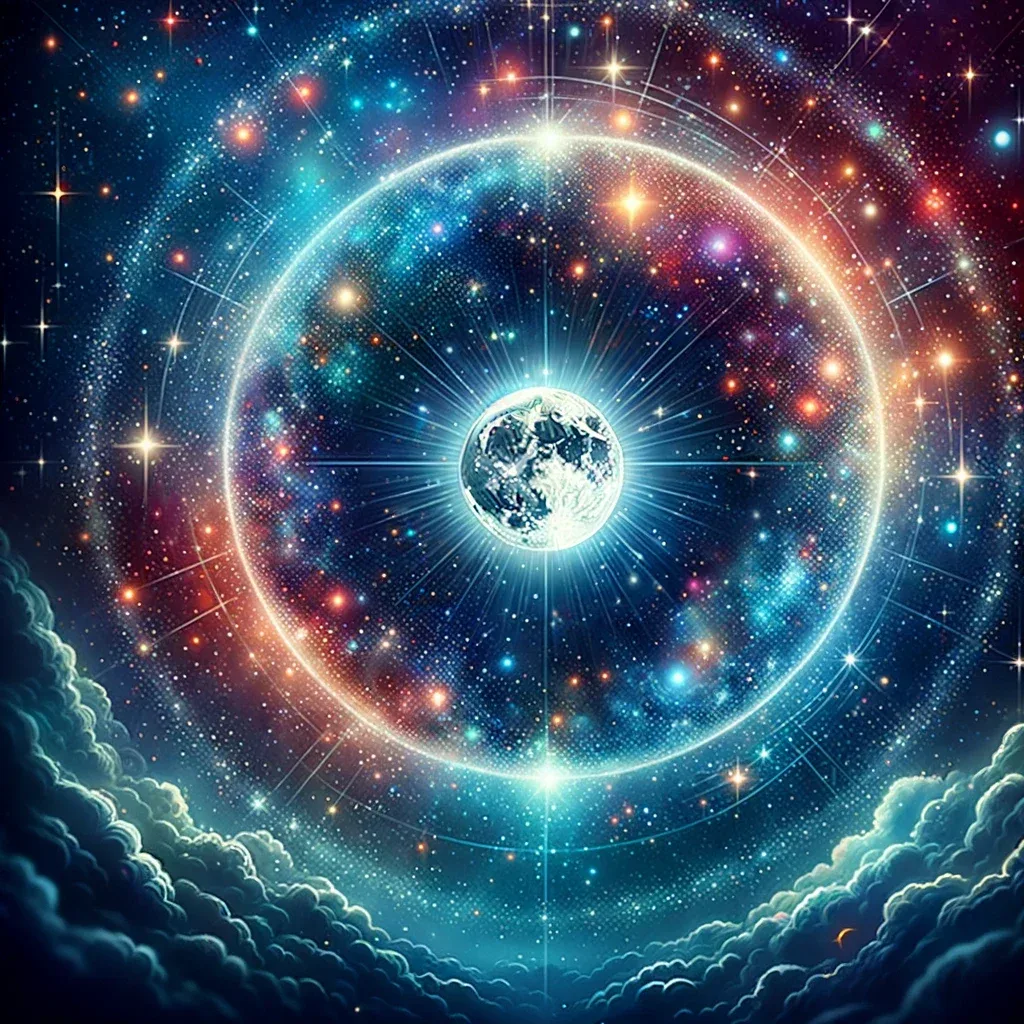The Dutch philosopher Baruch Spinoza (1632-1677) is a seminal figure in pantheism, and his ideas have an intriguing relationship with Stoic philosophy. Spinoza's God, an impersonal and immanent entity, challenges traditional notions of a personal and transcendent God. This article explores Spinoza's God, his alignment with pantheism, and the connections between his ideas and Stoicism.

God according to Spinoza: A Reinterpretation of Divinity
Spinoza rejected the idea of a personal and intervening God, proposing instead a view of God as the unique nature or substance that comprises all reality. His ideas were revolutionary and provoked much controversy during his lifetime and beyond.
Single Substance
Spinoza argued that there is only one substance in the entire universe, and that substance is God. This concept is the cornerstone of Spinoza's philosophy, emphasizing the unity and indivisibility of reality. Every entity or thing in the universe is an expression or mode of this unique substance. He refuted the idea of multiple substances, maintaining that such multiplicity would lead to an incoherent and fragmented explanation of reality.
Attributes and Modes
According to Spinoza, the single substance has an infinite number of attributes, but only two are accessible to the human mind: thought and extension. Modes are the particular expressions of these attributes. For example, individual ideas and bodies are modes of the attributes of thought and extension, respectively. Spinoza uses this framework to explain the relationship between mind and body, as well as the interconnectedness of all things.
Determinism and Freedom
The universe, according to Spinoza, operates according to deterministic laws, which are expressions of the nature of God. Freedom, in Spinoza's view, comes from understanding and accepting this determinism. By understanding the necessity and order of the universe, individuals can achieve a form of freedom that is consistent with natural law.
Pantheism: Divinity in Everything

Pantheism, the belief that God and the universe are identical, is often associated with Spinoza's philosophy. He did not separate God from nature, but saw God as wholly immanent in nature.
Immanent God
In Spinoza's pantheism, God is not a transcendent entity, but an immanent reality that is synonymous with the universe and its natural laws. This view challenges traditional notions of divine transcendence found in many monotheistic religions.
Nature Naturans and Nature Naturata
Spinoza distinguishes between “Natura naturans” (native nature) and “Natura naturata” (native nature), representing God's creative activity and its manifest results, respectively. This distinction helps to elucidate God's ongoing activity in nature and the concrete manifestation of that activity.
Connections to Stoicism
Spinoza's ideas about the nature of God and the universe have intriguing echoes in Stoicism, an ancient philosophy that also sees reason operating in the cosmos.

Logos
The Stoics believed in an organizing principle called Logos, which is comparable to the natural order proposed by Spinoza. The Stoic Logos permeates the cosmos, ordering and structuring reality in a rational manner.
Virtue and Knowledge
Both Spinoza and the Stoics value knowledge and understanding of the natural order as a means of achieving virtue and peace of mind. They see wisdom as a path to virtue and happiness.
Serene Acceptance
The calm acceptance of the natural order and the recognition that things are beyond our control are central themes in both Stoicism and Spinoza's philosophy. Peace of mind comes from accepting the cosmic order and our position within it.
Conclusion
Spinoza's philosophy offers a radical reinterpretation of divinity that aligns closely with pantheism and shares themes with Stoicism. Spinoza's God, impersonal and immanent, provides a vision of the cosmos that is rich in philosophical and ethical implications. By exploring these ideas, we can find valuable insights into the nature of reality and our place within it.
FAQ: Spinoza's God, Pantheism and Stoicism

1. Who was Baruch Spinoza?
Baruch Spinoza was a XNUMXth-century Dutch philosopher who proposed a revolutionary view of God and nature that challenged traditional conceptions of divinity.
2. What is Spinoza's One Substance?
Spinoza's One Substance is the idea that there is only one substance in the entire universe, and that substance is God. Everything that exists is an expression or mode of this one substance.
3. What are attributes and modes in Spinoza's philosophy?
The attributes are the essences of the single substance, and the modes are the particular expressions of these attributes. Spinoza identifies two attributes accessible to the human mind: thought and extension.
4. How does Spinoza see determinism and freedom?
Spinoza sees the universe as operating according to deterministic laws, which are expressions of God's nature. Freedom, in Spinoza's view, comes from understanding and accepting this determinism.
5. What is Pantheism?
Pantheism is the belief that God and the universe are identical. It is often associated with the philosophy of Spinoza, which sees God as wholly immanent in nature.
6. What are “Natura naturans” and “Natura naturata” in Spinoza’s philosophy?
“Natura naturans” and “Natura naturata” represent, respectively, the creative activity of God and its manifest results in Spinoza's philosophy.
7. How do Spinoza's ideas relate to Stoicism?
Spinoza's ideas about the natural order of the universe have echoes in Stoicism, which also sees reason operating in the cosmos. Both philosophies value knowledge of the natural order as a means of achieving virtue and peace of mind.
8. What is the Stoic Logos and how does it compare to Spinoza's ideas?
The Stoic Logos is an organizing principle that permeates the cosmos, similar to the natural order proposed by Spinoza.
9. How is serene acceptance seen in Spinoza and Stoicism?
Calm acceptance of the natural order and recognition that some things are beyond our control are central themes in both Stoicism and Spinoza's philosophy, leading to peace of mind.
10. How does Spinoza's view of God challenge traditional notions of divinity?
Spinoza's view of God as an impersonal and immanent entity challenges traditional notions of a personal and transcendent God, providing a radical reinterpretation of divinity.





